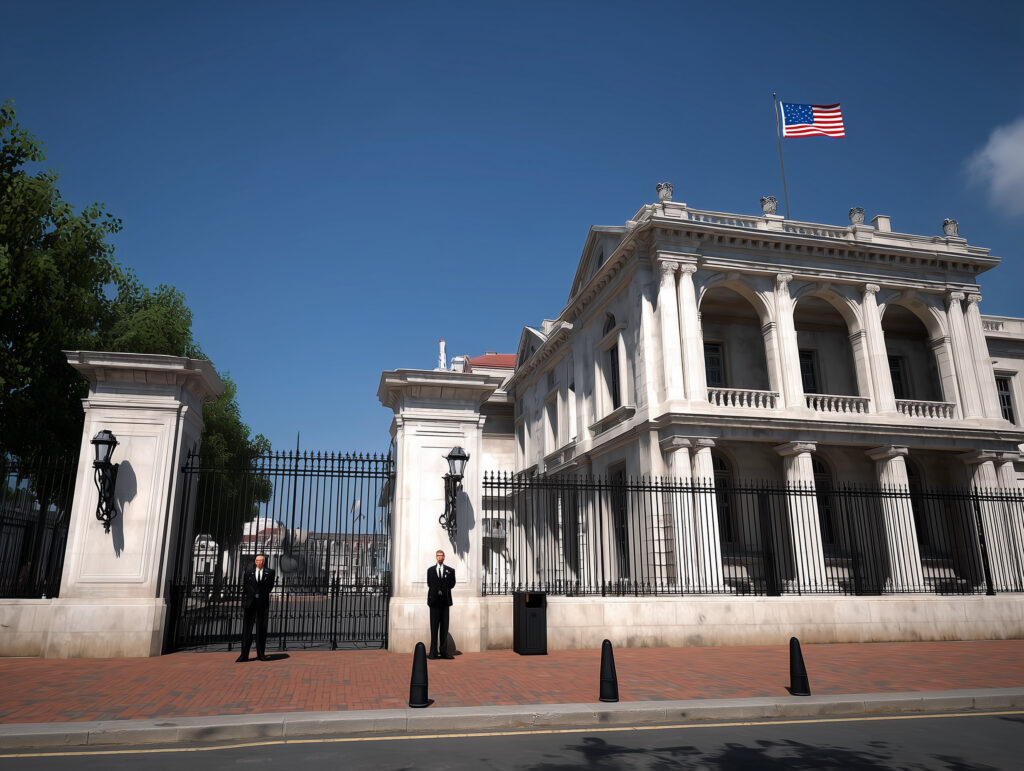In the world of diplomacy, information is currency, and secure communications are the vault that protects it. The U.S. State Department operates in 190 countries, managing 275 diplomatic posts while processing millions of classified cables, visa applications, and sensitive negotiations annually. Each embassy and consulate represents both a vital node in America’s diplomatic network and a potential vulnerability in an increasingly hostile cyber landscape.
The Unique Security Challenges of Global Diplomacy
Unlike domestic government agencies operating within controlled environments, diplomatic missions face extraordinary security challenges. Embassies sit within foreign telecommunications infrastructure, often in countries with sophisticated surveillance capabilities. Diplomatic pouches have given way to digital transmissions, and today’s ambassadors rely on electronic communications for everything from routine reporting to crisis management.
The State Department’s security needs span an enormous range:
- Classified diplomatic cables requiring the highest levels of protection
- Consular databases containing millions of citizens’ personal information
- Real-time crisis communications during emergencies
- Routine administrative traffic between posts and Washington
- Secure channels for intelligence sharing with allied nations
Each category demands different security protocols, yet all must integrate seamlessly to support diplomatic operations. Traditional security approaches often create friction between protection and functionality – a luxury diplomats cannot afford when managing international crises.
Why Traditional Security Falls Short at Posts
Current embassy security architectures typically rely on layered defenses: encrypted communications devices, secure rooms, dedicated networks, and extensive physical security. While effective, these measures present significant challenges:
Installing new security infrastructure at diplomatic posts requires host nation approval, specialized contractors with security clearances, and lengthy implementation timelines. In politically sensitive locations, even routine upgrades can trigger diplomatic tensions. Moreover, the need to maintain separate systems for different classification levels creates operational silos that impede efficient diplomatic work.
The quantum computing threat amplifies these vulnerabilities. Foreign intelligence services are undoubtedly harvesting encrypted diplomatic communications today, betting they can decrypt them once quantum computers become available. For diplomatic cables that might detail negotiating positions, intelligence assessments, or long-term strategic plans, this “harvest now, decrypt later” approach poses severe national security risks.
GABRL’s Revolutionary Approach to Diplomatic Security
GABRL transforms embassy security by delivering quantum-resistant protection without requiring infrastructure changes at posts. Its software-only deployment model means ambassadors can achieve military-grade security without negotiating with host governments or waiting months for specialized installation teams.
The zero-trust architecture perfectly aligns with diplomatic security needs. In an embassy environment where local staff, foreign nationals, and American diplomats share spaces and sometimes systems, GABRL’s continuous authentication ensures that every connection is verified in real-time. No user or device is trusted by default – a critical principle when operating in potentially compromised environments.
When a political officer in Beijing needs to send a classified assessment to Washington, GABRL automatically:
- Verifies the officer’s identity and authorization level
- Establishes a quantum-encrypted tunnel using AES256 encryption
- Routes the communication through secure channels invisible to local infrastructure
- Authenticates receipt at the State Department, ensuring message integrity
This happens seamlessly, without the officer needing specialized training or remembering complex procedures during high-stress situations.
Practical Implementation Across Diplomatic Operations
GABRL’s microsegmentation capabilities allow posts to create secure enclaves for different functions. The consular section processing visa applications operates in its own encrypted environment, separate from the political section handling sensitive negotiations. Even if one area experiences a breach, GABRL’s architecture prevents lateral movement to other sections.
For emergency situations, GABRL’s instant deployment proves invaluable. When establishing a temporary diplomatic presence or responding to a crisis, diplomats can achieve secure communications immediately upon arrival. No waiting for secure phones, no complex configurations – just download, authenticate, and communicate securely.
The system’s application-agnostic nature means it works with existing State Department tools. Whether using traditional cable systems, modern collaboration platforms, or specialized diplomatic software, GABRL provides consistent quantum-resistant protection without requiring any modifications.
Preparing for Tomorrow’s Diplomatic Challenges
As digital transformation accelerates diplomatic operations, the attack surface expands exponentially. Cloud-based services, mobile technologies, and increased interagency collaboration all create new vulnerabilities. GABRL’s invisible security layer adapts to these evolving needs, protecting communications regardless of the underlying technology.
The State Department cannot afford to wait for quantum threats to materialize. Diplomatic communications recorded today could compromise negotiations, intelligence sources, and national security for decades to come. GABRL offers immediate quantum-resistant protection while maintaining the operational flexibility diplomacy demands.
In an era where information warfare and cyber espionage threaten diplomatic effectiveness, GABRL reimagines embassy security for the quantum age. By making unbreakable encryption invisible and deployable anywhere, it ensures American diplomats can focus on their mission: advancing U.S. interests worldwide, securely and confidently.

